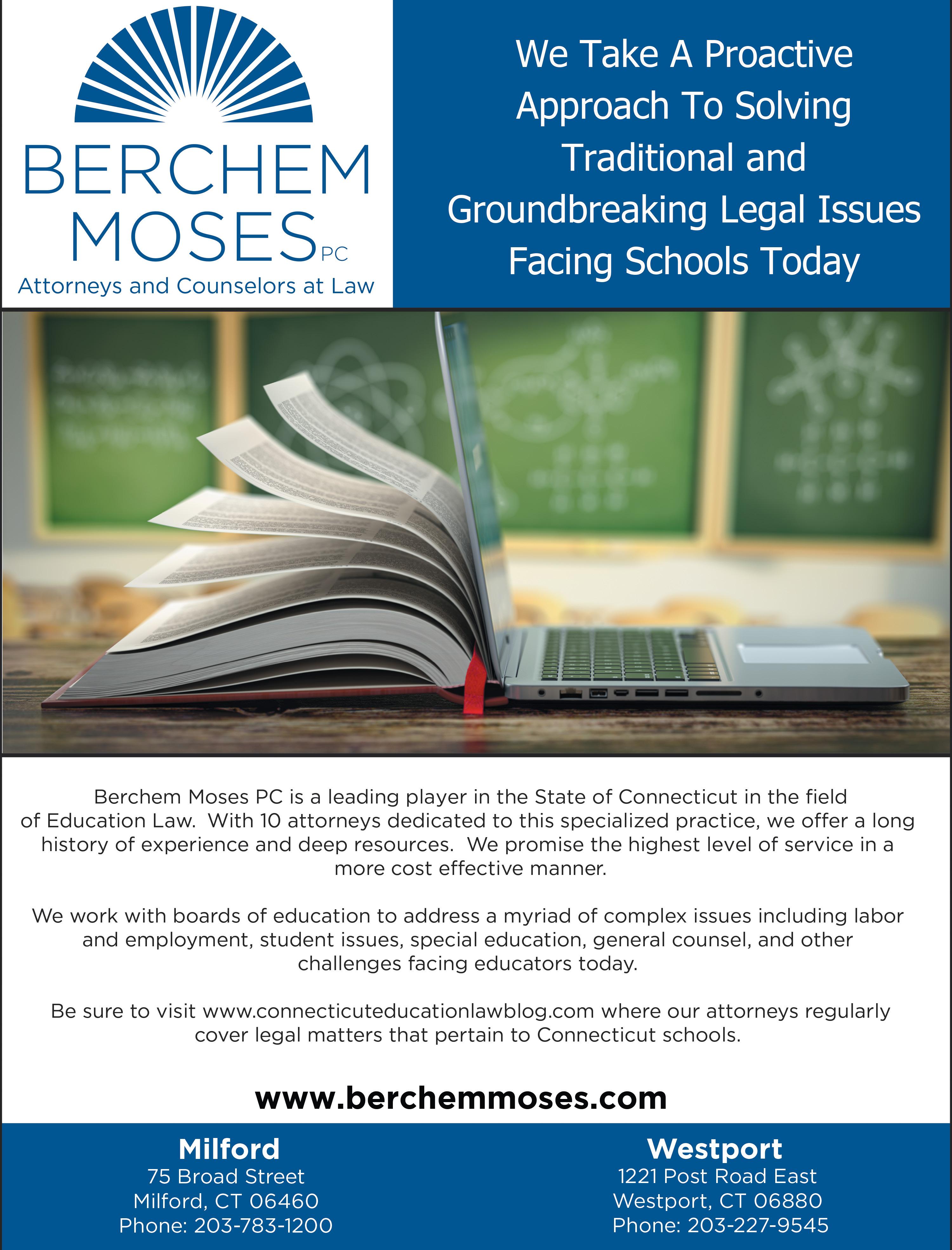
4 minute read
THE POLICY CORNER Book Selection Policies
Jody Goeler Sr. Staff Associate for Policy Service, CABE
As I look back on my experiences as a school superintendent, one of the responsibilities I found most rewarding was my work with Boards on policy development. While those long hours at night working with the Policy Committee on issues of clarity and meaning couldn’t compete with the joy brought on watching student performances and observing engaging lessons, the search for the correct word or the clear statement as well as the attention to process remained challenging.
Advertisement
Recently I’ve had the opportunity to review and provide feedback on policies earnestly drafted to tackle complex and divisive issues. In particular, Boards are currently reviewing their library book selection policies. In contrast with textbook adoption policies, where a two-thirds vote by the Board is required by statute to approve a curriculum-based textbook, choosing books for school libraries are a different matter. School libraries exist to provide all students a range of books and materials to engage them, stretch their imaginations, deepen their empathy towards others and their understanding of themselves, as well as to support school cultures of reading, thinking and discourse.
As Boards perform their role in policy development, the grueling work is typically assigned to the Policy Committee. Here it has been gratifying to observe intelligent discussions occurring regarding the role of parents, teachers and students to challenging questions: How do school libraries impact the Board’s Portrait of the Graduate and other aspirational goals for their students? What opportunities exist for parents or community members to challenge a book? What is the role of administration and professional staff in such a process? Through the pursuit of answers to such questions, stronger policies are developed. And stronger policies help sustain Boards through challenging times.
In addition to a library book selection policy, it is important for
Boards of Education to have a policy with explicit language and clear procedures for handling complaints. The American Library Association affirms in its Professional Code of ethics “the inherent dignity and rights of every person.” A thoughtful and workable complaint policy will help ensure that one parent’s concern regarding the “appropriateness” of a library book doesn’t impact other parents’ desire to have it available for their children to read.
As library book selection policies place the responsibility for choosing the books from the many published to curate their libraries, school librarians have sadly become the target of threats, social media doxing and trolling, and general abuse. Some with roots in national movements, these divisive campaigns to intimidate are designed to cause disruption, confusion, and outrage. These efforts to dismantle civil discourse have devolved into threats of violence in a handful of communities across the country. Often the targets of such threats and acts of violence are towards board of education members, superintendents, teachers and librarians
The American Library Association, which “condemns censorship and works to defend each person’s right to read and ensure free access to information,” documented over 1200 demands to censor library books and resources in 2022. Along with those documented attempts to ban school library books, ALA documented approximately 50 cases of threats against librarians as a result of book bans across 27 states.
Such reports include an email of an alleged bomb in schools in an upstate New York Community, death threats targeted against a Louisiana librarian for speaking out against censorship, and even an accusation that a Virginia Beach superintendent was distributing obscene material to minors. Although the threats have not led directly to violence against school personnel or schools so far, they leave staff in fear, and cause disruptions to district operations. Social media is often used as a tool weaponized regularly against librarians, teachers and citizens who speak up against censorship or banning efforts.
Connecticut Library Association’s Intellectual Freedom Co-chair, Sam Lee, offers excellent advice to assist districts dealing with efforts to ban or censor books: Trust your librarians. Follow established library policies and procedures. Communicate a positive and affirmative message related to libraries and community values.
As Boards of Education continue their critical role as policy makers, they will also need to provide support to their staff as they work to meet the needs of all students. As one superintendent whose district had been involved in a contentious book banning effort reflected, “lt’s important to make sure employees know their district supports them if they’ve been threatened for doing their jobs. Our response was to ensure employees that they were operating within the law (and policy) and that they didn’t have reason to be concerned. We support them and we support their efforts and we recognize them and value their hard work.”

With the continuing adverse impact in our communities from “the digital divide”, public and school libraries serve to provide critical access to all. Clear and decisive policy will go a long way towards establishing the Board’s position and clear guidelines for professional staff, students and parents.
Did you know that as a CABE member, your District has 24/7 access to the strategic communications services of Baldwin Media?
With more than 20 years of experience working with public schools, don’t do it alone
Over the years, Ann has partnered with countless Boards of Education and Superintendents navigate through a variety of issues, from getting out in front of budget referendums, personnel issues, social media challenges, school safety, etc
Assisting with district messaging for internal and external stakeholders and serving as the conduit between your “issue” and the media, she is here to help you manage the message
If she can help you with a simple phone call, there is no cost to you If the issue is more complex, then you can decide to access her expertise and additional services by contracting through CABE








